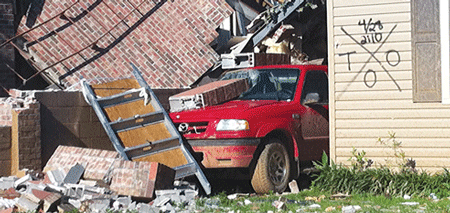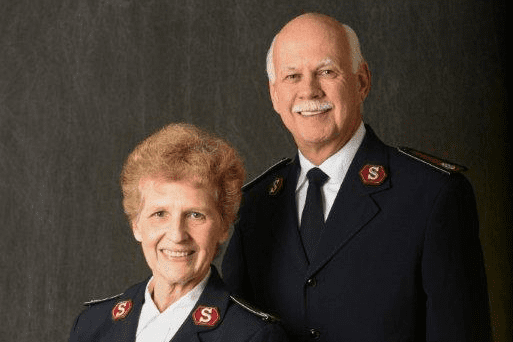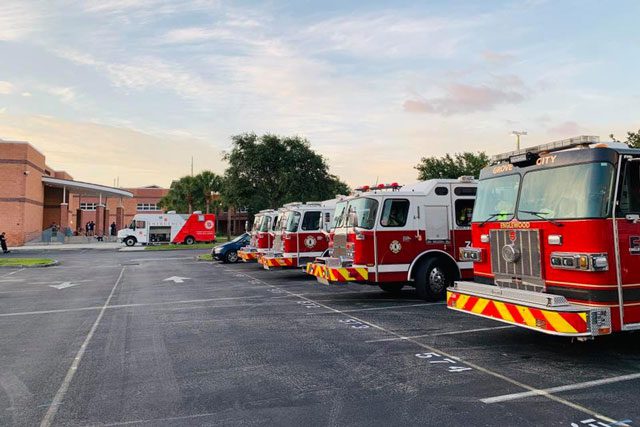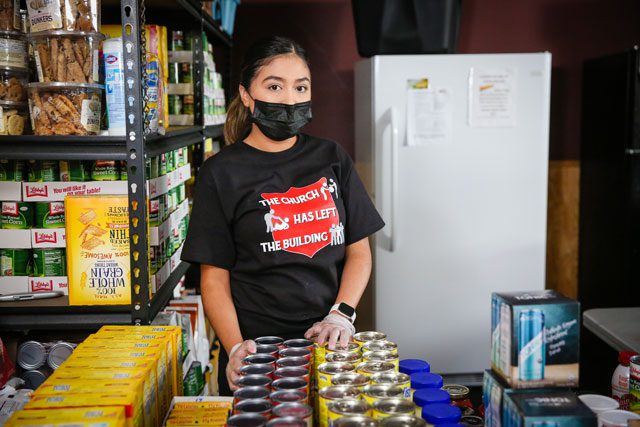 Western Territory volunteers participate in disaster response work in Alabama.
Western Territory volunteers participate in disaster response work in Alabama.
“It just came out of nowhere.”…“I looked up, it pulled the roof completely up and I saw people spinning above me.”…“I ran to the bathtub and held on. When I realized it was over, the only thing left was the bathtub.”
These are just a few eyewitness accounts of the tornado that hit Tuscaloosa, Ala., on April 27. Even though it occurred over a month ago, the memories are fresh and the damage is painfully obvious. Entire neighborhoods have been completely destroyed, as well as small businesses, and even an elementary school. Everyone agrees—even folks who have lived here all their lives over several decades—they have never seen anything like this before.
Despite the devastation, one thing is clear: Tuscaloosa will survive, rebuild and thrive. You can’t go anywhere here without seeing the University of Alabama’s pride phrases such as “Roll Tide Roll” and “Go Bama.” These same phrases are being added to T-shirts with the date of the tornado, serving as a reminder that together, they will overcome.
Western Territory volunteers
The Salvation Army is part of that spirit. With volunteers and employees coming from different territories—including the Western Territory—The Salvation Army is working, seven days a week, to serve the victims of this twister. Despite not knowing exactly what they would be walking into, the West’s volunteers and employees were willing to jump in and hold several responsibilities.
Jay Keeran, advisory board chair for the Petaluma Corps (Del Oro Division), first did casework, and then took charge of distribution and involvement in warehouse operations. Keeran’s team described him as a go-getter with a humble spirit.
The same could be said for Robyn Morgan from the Intermountain Division, Metro Denver Emergency Disaster Services, who is responsible for spiritual care. Morgan took to the streets of Tuscaloosa with bottles of water and cold fruit cups. She prayed with victims, replacement power workers, telephone workers and clean-up crews.
Captain John Hermanson, corps officer Green Valley, Ariz., (Southwest Division), transitioned from casework to distribution and finally warehouse work, as well as preaching at the first spur-of-the-moment park service at the Red Cross shelter.
Inglewood Citadel Corps (Southern California Division) ministry leaders Chris and Joanne Golden were first tasked with creating a database of disaster clients and reviewed FEMA applications to ensure that clients were provided with the highest level of care.
“One thing that I noticed was the children who have been displaced,” Chris Golden said. Young children having been coming into the center with their parents and our local Staples #165 has provided stickers for them. Even though the partnership we have with our friends at Staples is over 1,800 miles away, they assisted us with operational needs such as laser printers and UPS shipping.”
“In times like these, it is great to be able to depend on and work alongside our Salvation Army brothers and sisters in other territories. While the jobs and tasks might be different, the goal is the same: to serve the suffering in Christ’s name,” Joanne Golden said.
To date, members of the Western Territory have participated in the following activities:
*Conducting morning devotions for the Army team
*Developing an accurate list of affordable mental health resources for survivors;
*Canvassing the damaged areas on foot and by vehicle to provide snacks, support and prayer to survivors and work crews
*Working on the canteen and ministering to those who come for meals
*Checking regularly on the wellbeing of Army caseworkers, canteen workers and other staff and volunteers
*Visiting the local shelter and providing an outdoor church service for shelter residents and workers
*Traveling to locations of other community resources to be able to provide an accurate account of other goods and services available to survivors
*Overseeing case management
*Talking and praying with those waiting in the distribution center for review of their cases
*Attending memorial events and vigils to honor and remember those who died or were impacted by the disaster
*Collaborating with the Tuscaloosa News to attempt to locate the owner of a baby photo found near a demolished home
*Meeting with local mental health organizations to discuss roles and services; and
*Conducting an informal needs-assessment regarding canteen locations and populations being served
Replacement teams are still being sent into the disaster zones in the Southern Territory; please pray for those ministering to the victims and emergency workers.













